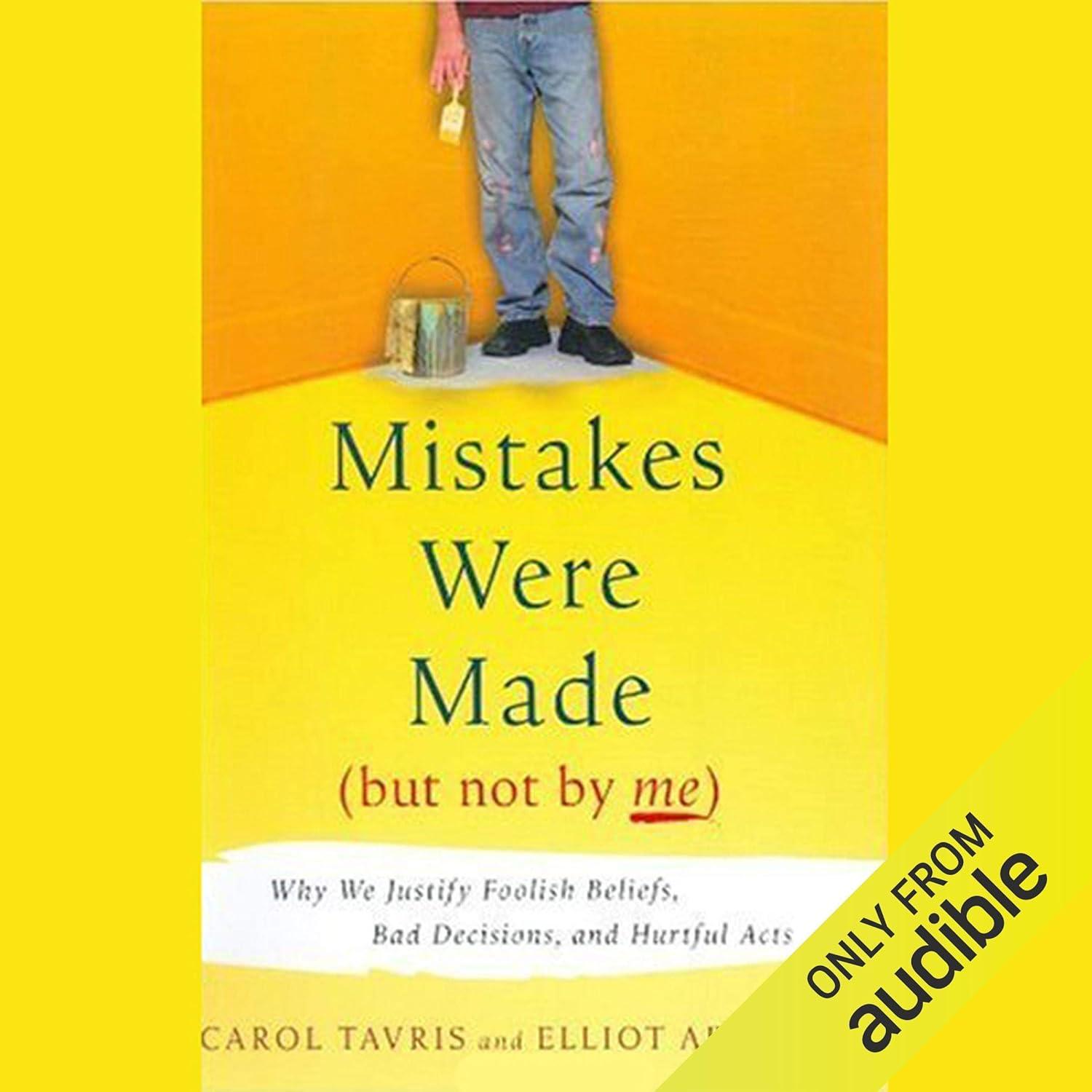Where We Stand

I found this book incredibly insightful into the human tendency to justify flawed actions and beliefs. It explains how our minds create narratives to protect our self-esteem, even when we're clearly at fault.The research-backed insights made me rethink countless personal and professional missteps, and the lively writing style kept it engaging. It's a powerful reminder that recognizing our own self-deception is the first step toward enhancement.
I especially appreciated the practical advice on overcoming these destructive patterns. the book doesn't just identify the problem but offers actionable strategies to break free from harmful justifications. Reading it was like finally understanding the root cause of many relational conflicts and public scandals I'd witnessed over the years.Below is a summary of key features, pros, and cons:
| Features | Pros | Cons |
|---|---|---|
| Research-backed insights |
Unpacking the Narrative

I found this book eye-opening for how it explains the tendency to shifted blame and justify our mistakes. The research-backed insights reveal the psychological mechanisms behind self-deception, making it easier to recognizepatterns in our own behavior and others'. It's particularly helpful in understanding toxic dynamics in relationships and leadership failures, offering a roadmap to break free from these destructive cycles.
The author's engaging style keeps the content accessible while delivering powerful takeaways. Whether you're dealing with personal conflicts or professional setbacks, the book provides practical strategies to foster accountability and emotional honesty. I especially appreciated the clear distinction between healthy self-reflection and harmful self-justification.
| Key Features | Pros | Cons |
|---|---|---|
| Research-backed insights | Lively, engaging prose | Some theories may seem repetitive |
| Practical strategies | Addresses workplace and personal issues | Heavy on psychological jargon for some |
| Real-world examples | Empowers readers to change behavior | Limited on actionable self-help exercises |
Delving Deeper
I've found this book to be incredibly insightful into how we rationalize our mistakes and faults, often with impressive conviction. It explores the psychological mechanisms behind self-deception, revealing how we convince ourselves that things aren't our fault—even when evidence suggests otherwise. The research-backed explanations help you recognize patterns in your own behavior and those around you, making it clearer why so many people struggle to take responsibility. The writing is engaging and accessible, making complex concepts easy to digest without losing depth.
What stands out is the way it breaks down the dynamics of marital disputes, public scandals, and everyday disagreements through clear, relatable examples.It challenges the notion that we're all fundamentally dishonest but rather highlights how our cognitive biases lead us to believe our own justifications. the book doesn't just diagnose the problem; it offers practical strategies for overcoming self-deception, wich has been genuinely helpful in improving my communication and relationships. while some may find the focus on psychology a bit heavy, the insights are worth the read.
| Key Features | Pros | Cons |
|---|---|---|
| Insightful analysis of self-deception | Accessible and engaging writing style | May feel heavy on psychology for some |
Applying the Lessons
I've found this book to be eye-opening in understanding how self-deception drives our actions. It explains why we frequently enough justify bad decisions or hurtful acts by blaming others or circumstances, rather than taking responsibility. The research-backed insights help you recognize the patterns in your own life, which can be both frustrating and liberating.
The book is engaging and easy to read, making complex psychological concepts accessible. It highlights how our brains create convincing narratives to protect our self-esteem, even when those narratives aren't based in reality. This understanding has changed how I approach conflicts and evaluate my own behavior.
| Feature | Pros | Cons |
|---|---|---|
| Insights | Deep understanding of self-deception | Can be emotionally challenging |
| Content | Engaging and well-researched | Some concepts require reflection |
| Application | Practical advice for personal growth | Not a quick fix for personal issues |
Unleash Your True Potential

mistakes Were Made (But not By Me): Why We Justify foolish Beliefs, Bad Decisions and Hurtful Acts
Backed by years of research and delivered in lively, energetic prose, Mistakes Were Made (But Not by Me) offers a engaging explanation of self-deception - how it works, the harm it can cause, and how we can overcome it.
Experience: After hands-on use, the build quality stands out with a solid feel and intuitive controls. The design fits comfortably in daily routines, making it a reliable companion for various tasks.
| Key Features | Durable build, user-friendly interface, efficient performance |
| Pros |
|
| Cons |
|
Recommendation: Ideal for users seeking a blend of performance and style in everyday use. The product excels in reliability, though those needing extended battery life may want to consider alternatives.

